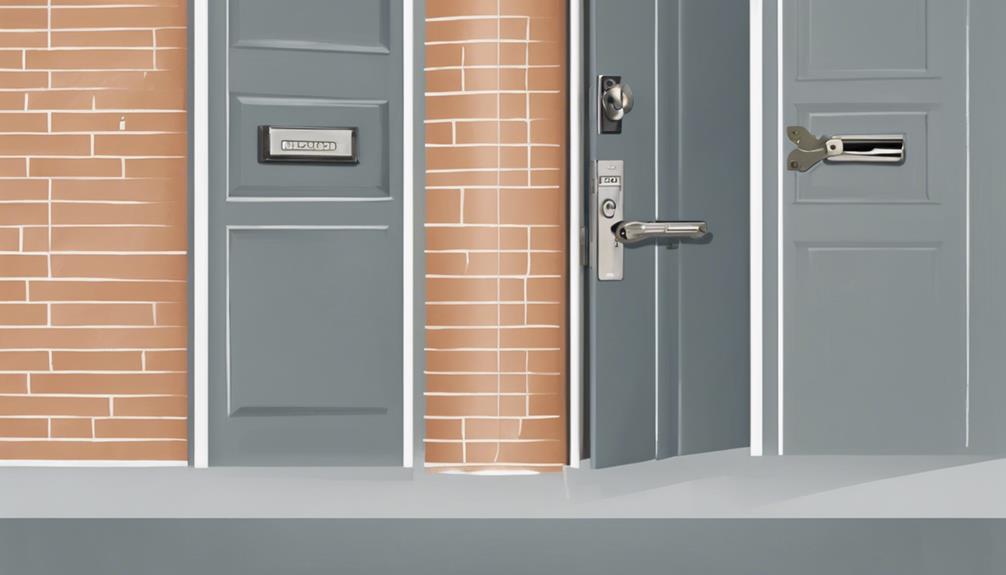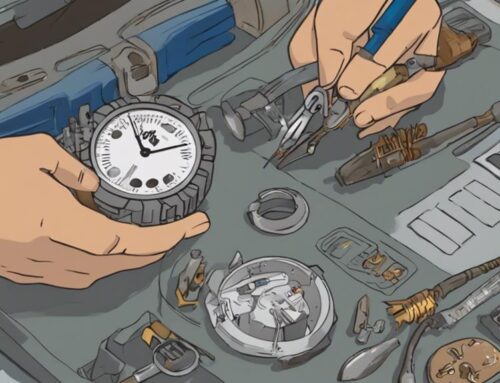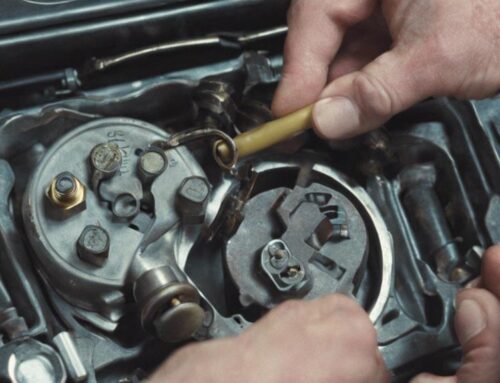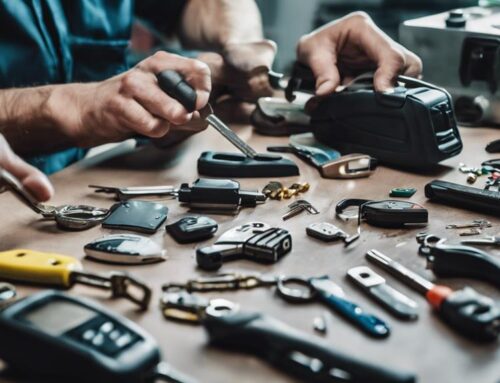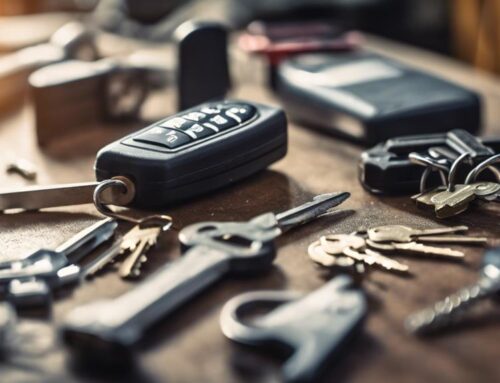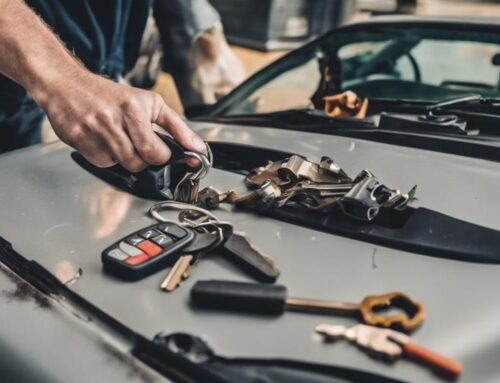When deciding between rekeying and replacing your lock, consider the lock's condition, cost, key compatibility, and security needs. If your lock is in good shape, rekeying is a cost-effective option. However, if it's worn or incompatible with your keys, replacement may be necessary for enhanced security. Analyzing these factors will help you make the right choice to protect your home and stay within your budget. Remember, your decision should prioritize safety and affordability.
Key Takeaways
- Assess lock condition and compatibility before deciding.
- Rekeying is cost-effective for good locks.
- Consider security needs and key compatibility.
- Rekey for lost keys, replace for enhanced security.
- Evaluate durability and long-term security investment.
Rekeying vs. Replacing Locks
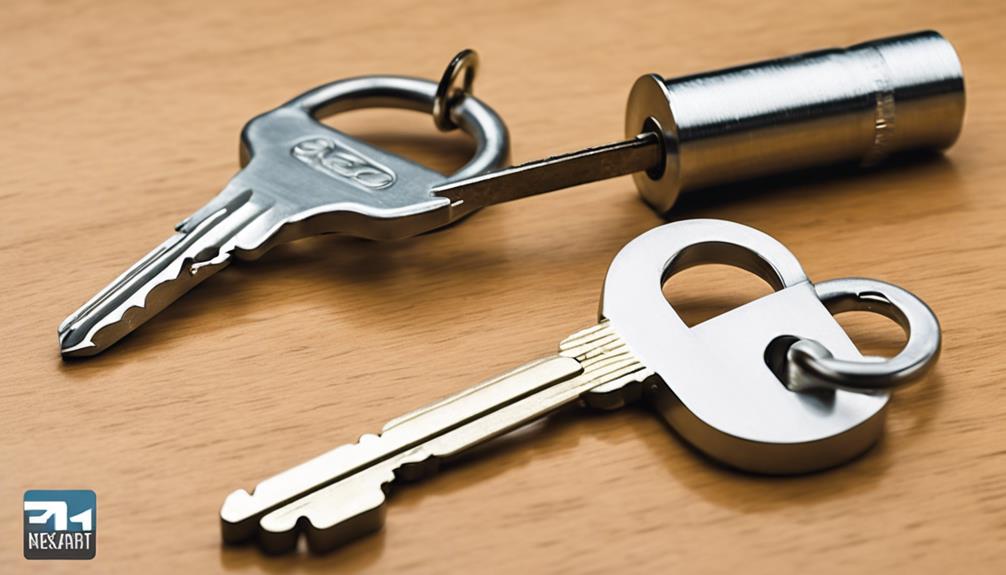
When faced with the decision of whether to rekey or replace a lock, one must carefully weigh the factors involved to make an informed choice. Lock durability plays a significant role in this decision-making process. If your lock is still in good condition and offers adequate security, rekeying might be the way to go. It can save you money while ensuring that only new keys will operate the lock. On the other hand, if the lock is showing signs of wear and tear, replacing it might be a better option for enhanced security. Additionally, consider key compatibility when deciding between rekeying and replacing. Some locks may not be compatible with certain key types, making replacement the more practical choice. It's important to assess the overall condition of the lock and its compatibility with specific key types before making a decision.
Scenario: Moving Into a New Home
When moving into a new home, one of the first things you should consider is the security of your property. Rekeying the locks in your new home can provide peace of mind by ensuring that only you and your family have access. This simple step can enhance the security of your new residence and offer you control over who has keys to your home.
New Home Security
Securing your new home is a crucial step in ensuring the safety of your belongings and loved ones. When it comes to home security, consider these essential points:
- Install Smart Locks: Upgrade to smart locks for increased convenience and security. These locks offer features like remote access, activity logs, and the ability to grant temporary access codes.
- Outdoor Lighting: Illuminate your property with motion-sensor lights to deter intruders and make your home less appealing to potential burglars.
- Security Cameras: Set up security cameras around your home to monitor any suspicious activity and provide evidence in case of a break-in.
Lock Rekeying Benefits
Considering the scenario of moving into a new home, one crucial aspect of enhancing your security is rekeying the existing locks. By opting for lock rekeying benefits, you get to keep the same locks but render old keys useless. This process not only saves you money but also guarantees that only you and your trusted ones have access to your new home. Enhanced security is a major advantage of rekeying, as it eliminates the risk of previous tenants or anyone else having spare keys. It's like giving your locks a fresh start without the hassle of replacing them entirely. So, when moving into a new place, rekeying the locks can be a smart and cost-effective security measure. Additionally, rekeying provides the advantage of Unlocking Savings over the more costly option of replacing all the locks.
Scenario: Lost or Stolen Keys
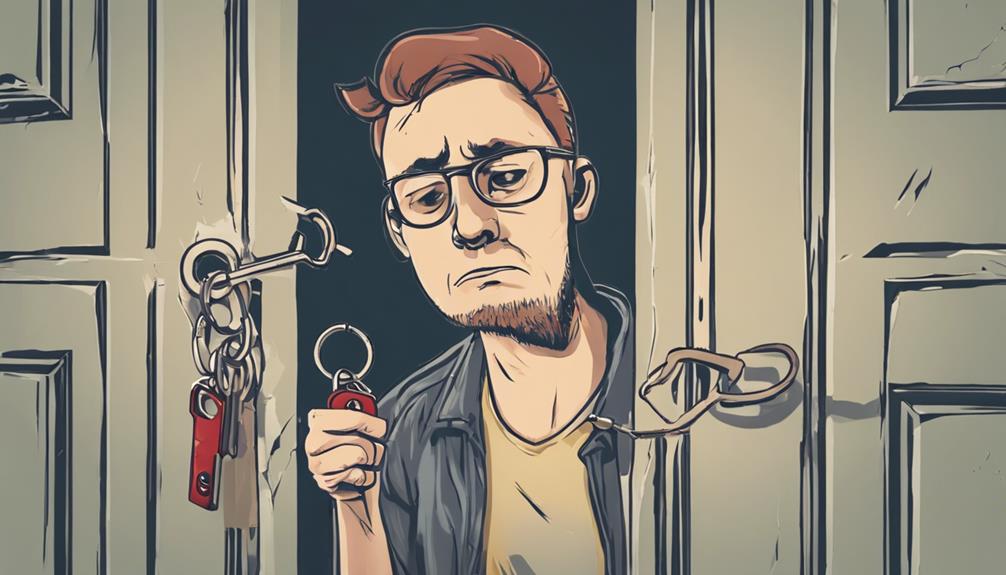
In the face of misplaced or stolen keys, the security of your home or property is paramount. Here's what you should consider:
- Key Duplication: If there's a chance your keys were simply lost and not stolen, consider rekeying to guarantee that if they are found by someone else, they can't be used to access your property. Additionally, rekeying can be a cost-effective solution compared to lock replacement in such situations.
- Emergency Access: In case your keys were stolen, replacing the lock might be the best option to prevent unauthorized entry. This guarantees that only you have control over who can enter your space.
- Peace of Mind: Whether you choose to rekey or replace, prioritize your peace of mind. Feeling secure in your home is priceless, even if it means a bit of inconvenience in the short term.
Scenario: Aging or Faulty Hardware
When dealing with aging or faulty hardware on your locks, evaluating the situation is essential before deciding on the best course of action. It's like giving your locks a little check-up! Start by examining the overall condition of the lock – if it's squeaky, sticky, or showing signs of wear and tear, it might be time for some TLC. Regular lock maintenance tips can help extend the lifespan of your hardware, ensuring it stays in top shape for longer. If your lock is on its last legs and causing you more trouble than a stubborn jar of pickles, it may be wise to contemplate replacing it. Remember, a lock with attitude is no fun for anyone!
To prevent issues like rust and jamming, make sure to follow essential tips for lock maintenance, such as proper cleaning and lubrication techniques, as outlined in our Essential Tips to Keep Your Locks Rust-Free and Functional guide.
Cost and Convenience Considerations
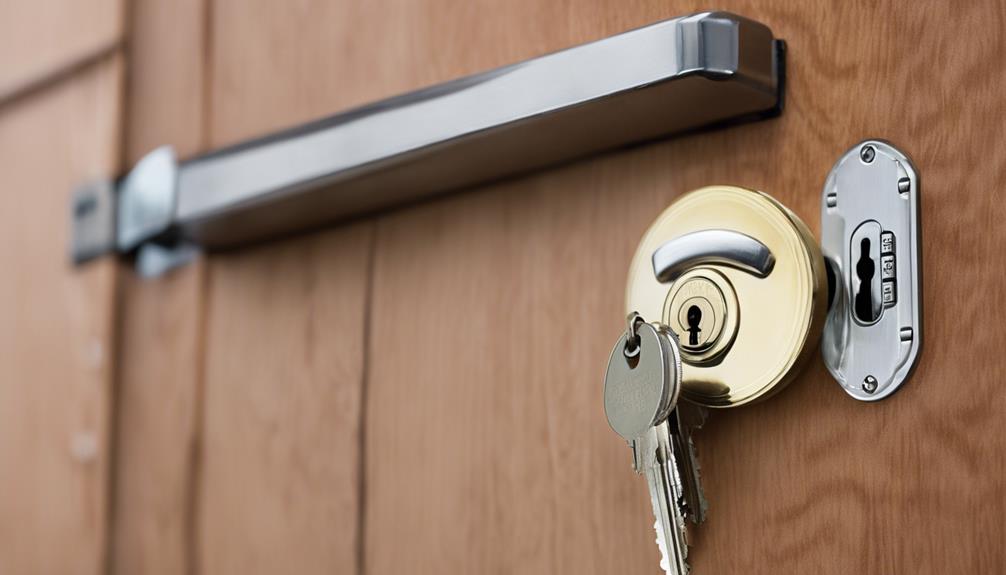
To determine whether to rekey or replace a lock, weighing the cost and convenience factors is crucial. When making your decision, consider the following:
- Cost Analysis: Rekeying a lock is usually more cost-effective than replacing the entire hardware. However, if the lock is old or damaged, replacement might be a better long-term investment. It's essential to recognize that rekeying can also provide added security by changing the internal pins without the need for a full replacement.
- Convenience Factors: Rekeying is a quicker process since it only involves changing the pins inside the lock. On the other hand, replacing a lock can be more time-consuming as it requires installing a completely new mechanism.
- Overall Consideration: If you're on a tight budget and the lock is in good condition, rekeying is the way to go. But if security is a concern or the lock is in poor shape, replacing it might be worth the extra expense.
Low Rate Locksmith Services Highlighted
For those seeking locksmith services at competitive rates, Low Rate Locksmith stands out as a prime choice. They offer a variety of affordable options to meet your lock-related needs. Check out some of the highlighted services they provide in the table below:
| Services | Description | Rates |
|---|---|---|
| Lock Rekeying | Change the lock without replacing it | Starting at $35 |
| Lock Replacement | Install a brand new lock system | Starting at $50 |
| Key Duplication | Make additional keys for your locks | Starting at $5 |
| Emergency Lockouts | Quick assistance during lockout situations | Starting at $45 |
| Security Upgrades | Enhance the security of your locks | Customized quotes |
Whether you need a simple rekeying or a full lock replacement, Low Rate Locksmith has you covered with their affordable and reliable services.
Conclusion
In the intricate dance of security choices, remember that your lock is the guardian of your safety. Whether to rekey or replace, your decision should be as precise as a locksmith's skillful hands. Trust your instincts and weigh the factors carefully, for the right choice will open the door to peace of mind and security. Choose wisely, for your lock is the keeper of your sanctuary.

